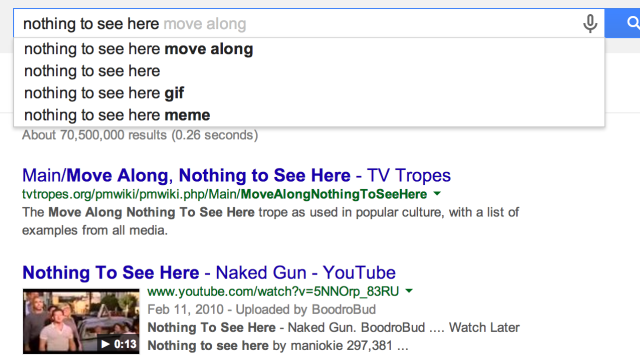In the year-plus since Edward Snowden lifted the veil on just how closely the US government (and others) tracks our online lives, a few things have changed. Tech companies are encrypting more; foreign governments are trusting less; and, according to a new study, we’re all searching quite a bit more cautiously.
The study, from Alex Marthews and Catherine Tucker, sifted through the frequency of nearly 300 potentially sensitive search terms both before and after the Snowden leaks. What they found? We’re collectively less likely now to search for things that might “get [us] in trouble with the U.S. government” than we were then.
But what about you? Are you searching differently? Or maybe just seeking out ways to search — Tor, DuckDuckGo, etc — that leave you less exposed? It seems to me that even if I haven’t consciously changed my search habits, surely the underlying knowledge that anything I put into the internet may well end up in the NSA’s servers has influenced my queries in little ways that add up. [SSRN via Twitter]
